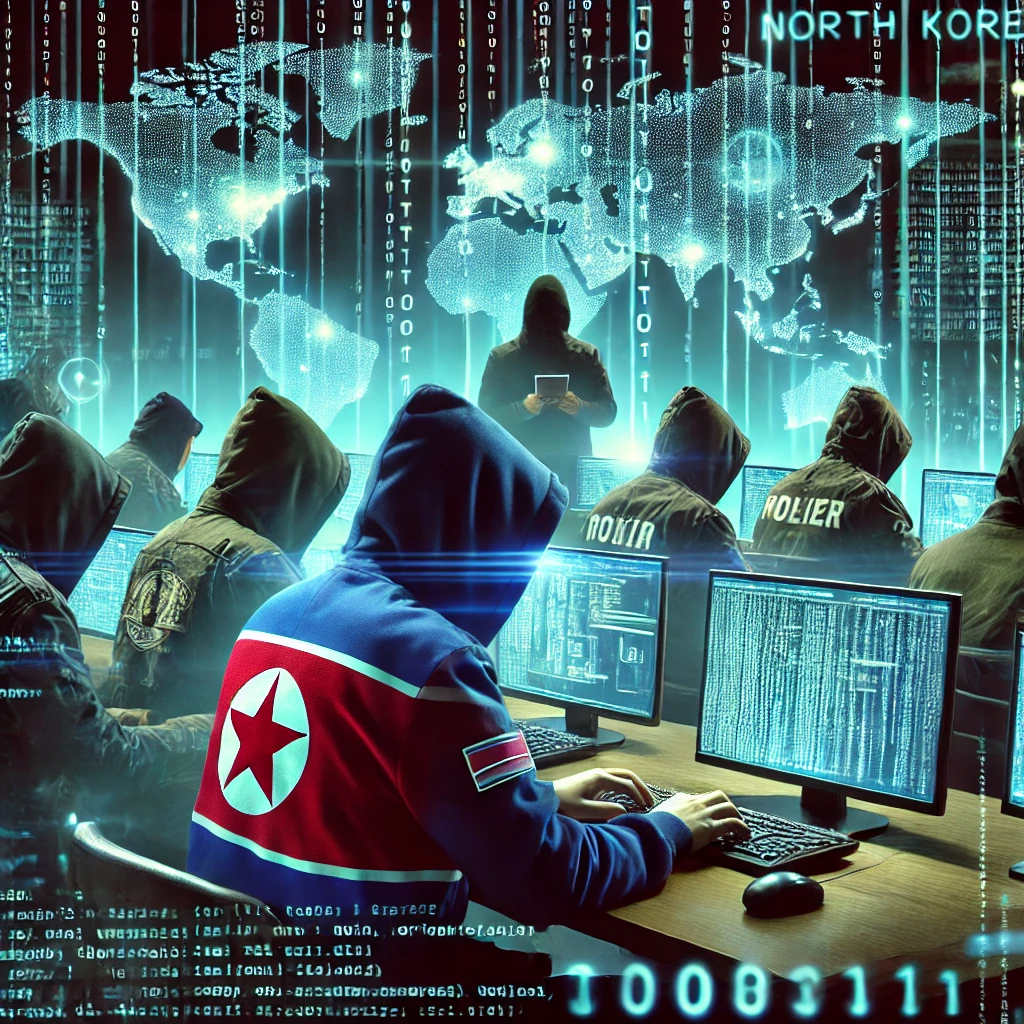In a significant shift from their traditional operations, North Korean hackers have increasingly moved from cyber espionage to financially motivated ransomware attacks. This evolution in tactics highlights a strategic pivot to generate funds for the nation amidst tightening international sanctions and economic challenges.
Background The cyber group known as APT45, which has been active since 2009, is now focusing on ransomware. This group, alongside other North Korean hacking units like APT38, APT43, and the Lazarus Group, operates under the Reconnaissance General Bureau (RGB), North Korea’s military intelligence agency. Historically involved in cyber espionage, these groups have targeted critical infrastructure, government entities, and defense organizations.
Recent Developments
- Ransomware Campaigns:
- APT45 has been linked to ransomware families such as SHATTEREDGLASS and Maui, which have targeted entities in South Korea, Japan, and the United States. These ransomware attacks were particularly active during 2021 and 2022, marking a shift towards financially motivated cybercrime.
- The group has also deployed the Dtrack backdoor, previously used in the 2019 cyberattack on India’s Kudankulam Nuclear Power Plant. This attack underscored North Korea’s capability and intent to target critical infrastructure globally.
- Motivations and Objectives:
- The pivot to ransomware is seen as a strategy to generate funds to support North Korea’s state priorities, given the severe economic constraints the country faces. Cyber operations have become a crucial tool for the regime to bypass international sanctions and fund its activities.
- Geopolitical Implications:
- The activities of APT45 and other North Korean cyber units reflect the regime’s evolving geopolitical strategies. As the country increasingly relies on cyber operations as an instrument of national power, the nature and targets of these operations continue to adapt to the changing priorities of North Korea’s leadership.
Case Study: The KnowBe4 Incident In a recent incident, cybersecurity training firm KnowBe4 inadvertently hired a North Korean IT worker who used a stolen identity enhanced with AI. This individual, supported by state-backed infrastructure, managed to circumvent typical hiring and background check processes, highlighting the sophistication of North Korean cyber strategies. The worker attempted to manipulate session history files and transfer harmful software, but the attack was contained before sensitive data was compromised.
Conclusion The shift from cyber espionage to ransomware by North Korean hackers marks a notable change in their operational tactics. This evolution is driven by the need to generate revenue in support of the regime’s strategic objectives. As these groups continue to adapt and innovate, organizations worldwide must enhance their cybersecurity measures to defend against increasingly sophisticated and financially motivated cyber threats.
Recommendations for Enhanced Cybersecurity
- Strengthen Hiring Processes:
- Implement robust identity verification and background check protocols to prevent infiltration by malicious actors using stolen identities.
- Improve Cyber Defense Mechanisms:
- Utilize advanced threat detection and response solutions to identify and mitigate cyber threats in real-time.
- Conduct regular security audits and vulnerability assessments to ensure robust defense against potential attacks.
- Enhance Employee Training:
- Provide ongoing cybersecurity awareness training to employees to recognize and respond to potential threats effectively.
- Collaborate with Cybersecurity Experts:
- Partner with cybersecurity firms and utilize their expertise to bolster organizational defenses and stay updated on emerging threats.
By adopting these measures, organizations can better protect themselves against the evolving tactics of North Korean cyber operators and other advanced persistent threats.
